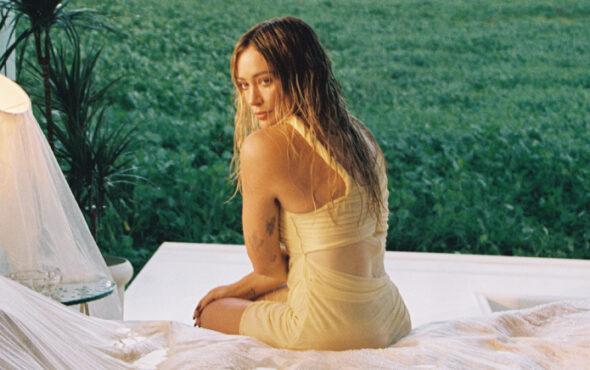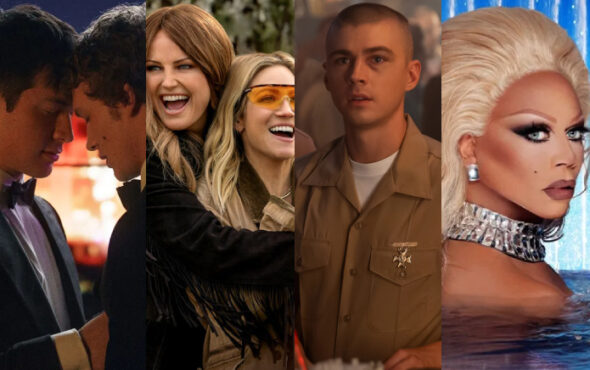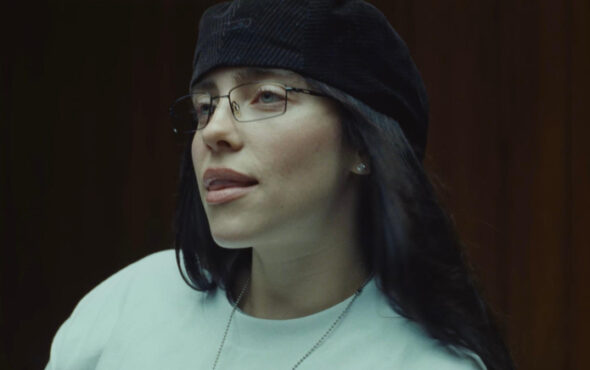
When anyone attempts to discuss Taylor Swift’s art, it almost feels mandatory to state one’s position. I, like hundreds of millions around the world, would describe myself as a long-time fan. Born in the 90s, her music has punctuated much of my life. When Swift announced The Eras Tour, I was lucky enough to get tickets for weekend two in Las Vegas. The cost of travel, accommodation, and the ticket itself paled in comparison to see what I imagined would be her best tour yet– and I wasn’t disappointed. The ambition, creativity, and scale of that production were, in a word, phenomenal.
I went spoiler-free, and what followed was a blur of scale and ambition – an experience almost too big to hold. Like many in the years since, I realised that the few hours I spent in Allegiant Stadium were a hazy memory, blurred by the sheer excitement and spectacle of that night. Because the show I attended was only the third in a 100+ date run, I had managed to avoid spoilers and social media to experience it with as little prior context and expectation as possible. The memory remains: dazzling.
That feeling – of trying to hold on to the person inside the spectacle – sent me back to a time Swift felt notably human to me: a scene from Miss Americana. In 2020, talking with other “Swiftie” friends and colleagues, many of us realised we shared a fondness for Swift not just as a singer, but as a person. The Netflix biopic offered a more intimate view of her perspectives, worries, and convictions.
In one scene, Swift criticises Marsha Blackburn, a Republican senator from Tennessee, for her policies and voting record in Congress. For me, the most striking moment was watching Swift plead her case to her team and father – explaining why she needed to speak up. It stayed with me. Not just because I agreed with her concerns, but because I saw the person behind the performer: someone genuinely worried about people’s rights, women’s rights, and essential autonomy. Someone who seemed deeply concerned for a society where so many are excluded from positions of power and dignity.
The Life of a Showgirl: Baby, That’s Show Business Vinyl Collection is available now on my site for 48 hours while supplies last ❤️🔥https://t.co/WdrCmvLHyA
Album Producers: Max Martin, Shellback and Taylor Swift
📸: Mert Alas & Marcus Piggott pic.twitter.com/ExVQpnEyOk— Taylor Swift (@taylorswift13) August 21, 2025
Fast forward to 2025, and following her wildly successful and critically acclaimed tour, Swift announced her new album The Life of a Showgirl. I hoped that the human voice might cut through again. Hearing she’d be reuniting with long-time collaborators Max Martin and Shellback made me excited. Together, they made the album I return to most often: Reputation.
I love that record, and I love its context even more. Off the back of her very public “cancellation,” Swift re-emerged with a collection of songs that showcased her singular ability to fuse stadium-sized bangers with intricate, poetic storytelling. She reminded a world distracted by tabloid feuds of her talent and craft.
With the collaborators who once helped her alchemise chaos into craft, I couldn’t help but wonder what this new album would sound like. Although the context has shifted – Swift is now more popular than ever – my hope was that The Life of a Showgirl would capture the same energy as that hazy March evening in Las Vegas: an artist reaching into numerous corners of the musical world to create songs both meaningful and anthemics, stories we’d live with for years. That’s what I thought, and hoped, The Life of a Showgirl would be. Listening to the album on release day, I can’t help feeling a bit disappointed. Far from the expansive, ambitious and captivating tour it was linked to in promotion, it feels instead insular, isolated and not quite so groundbreaking.
When Swift announced the album on her fiancé’s equally successful podcast, I wondered what was in store for the often-important promo cycle ahead of the release. Would we get the awe-inspiring creativity of the tour translated into the music videos? A few TV performances? Pre-recorded live sets, like her Disney+ folklore sessions? We didn’t get those things. We did, however, get pre-order vinyl variants, more pre-order vinyl variants, and… cardigans. And herein lies my ever-decreasing hope and increasing ‘Swiftie’ sadness.
To be clear: being a musician, songwriter, or producer is incredibly difficult. It doesn’t pay off for 99% of artists who try to “make it.” The system is immensely challenging, and often you must work within it to have any chance of succeeding. One way artists survive is by selling products. Products pay more than streams. They also “count” more than streams in how we perceive success – in sales and on the charts. I fully appreciate the unfortunate need to engage with this game to get noticed, engage fans, and build a career.
But Swift is a rare exception. She is already a billionaire. She is already immensely successful, with more titles and records than one could fathom. Which raises a harder question.
What does ‘winning’ look like when you’ve already won?
When ‘winning’ is prepaid in vinyl variants and merchandise, the conversation we’re invited into on release day risks becoming a ritual after the fact. We talk as if our listening decides something, when the outcome was decided weeks ago at the checkout of TaylorSwift.com. Nobody likes buyers’ remorse, so we sit here today listening… wanting… needing it to be good.
I can’t help but feel this increasingly reflects our consumerist and polarised world – where we’re pushed to love or hate and patience for nuance is thin – and how an artist rolls out an album becomes part of the signal. If success is predetermined by pre-orders, then conversation becomes an act. Whether we like or dislike the album almost doesn’t matter anymore. Many artists describe release day as letting go and waiting to see what comes back – how it makes people feel, how it reflects the moment, how it’s interpreted. But if all roads lead to a foregone number-one (or other success-driven superlatives), what are we actually being asked to do?
That’s the part that feels challenging as a fan who still remembers Miss Americana: the moment she argued, plainly and vulnerably, for why her voice mattered. It reminded me there’s a person, Taylor Swift, inside the business of being Taylor Swift. The Life of a Showgirl could have been an invitation to that person. Instead, it feels like we are playing the role of consumer. Instead of seeing Swift’s brilliant creativity in the album run-up, we heard from her only occasionally, announcing another vinyl package available to purchase.
The Life of a Showgirl: The Tiny Bubbles in Champagne Vinyl Collection is available now on my site for 48 hours while supplies last ❤️🔥https://t.co/WdrCmvMfo8
Album Producers: Max Martin, Shellback and Taylor Swift
📸: Mert Alas & Marcus Piggott pic.twitter.com/y7kb3B4YvU— Taylor Swift (@taylorswift13) August 25, 2025
Undoubtedly, there are millions who want Swift to win. I just no longer believe ‘winning’ is an arms race of variants and sales stats. Winning, for an artist at her altitude, might be choosing the harder path: trusting the music to make an impact, or not. Winning for us, as fans, is creating a world where we can say, ‘I like it, but it’s not my favourite,’ without being ‘proven’ wrong by a deluge of stats. (Update: one week since release, a deluge of comments online have done exactly that. Shutting down fans who say it’s not their favourite album with replies like “well, it’s the biggest release of all time.”)
I imagine we will see numerous records made once again. But the victory I’m hoping for has a bit less to do with winning and a bit more to do with the person. Somewhere beyond the sleeves of vinyl that will never see a record player, the human behind the performer comes around again –asking us to talk, to share, and to feel, before we buy.
Tag Warner, is the CEO of GT Group. This opinion piece was submitted to the Editor of GayTimes.com.


